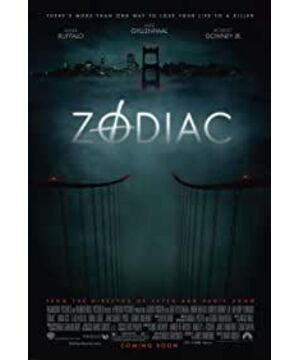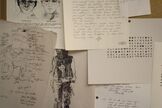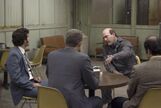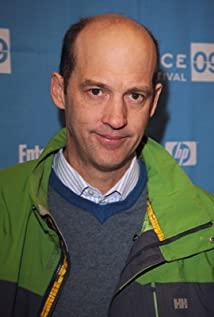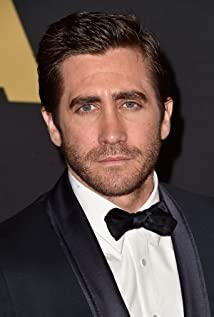What does it mean to be underestimated?
If a movie talks about A and everyone understands it as B, it is called being misunderstood; if a movie is clearly good but few people know it, it is called buried; if a movie is originally good, but most people can’t stand it , Called art film.
So what is underestimated?
I think the most obvious feature should be: we think it is simple.
In this sense, if I were to say an underrated movie, the first thing I thought of was "Zodiac" directed by David Fincher.
It is a crime film about a serial killer who called himself the "Twelfth House" in San Francisco in the 1960s and 1970s. In the past ten years, he committed many murders. The film is adapted from real events and tells the whole process of chasing the murderer.
If it is a normal crime movie, the narrative should focus on the confrontation between the police and the robber, and the plot should be ups and downs and dangerous.
But "Zodiac" does not.
It is more like a slow-paced literary film, and the murderer is not identified in the end. When you watch it, you may even ask questions. Did David Fincher spend nearly three hours just telling a story about the escape of the real murderer? If not, what is he talking about?
Maybe the two scenes at the beginning of the film can give us some hints.
In the first shot, a pair of young men and women who are about to be killed drove out for a date.
The second scene is that after the "Zodiac" killed a person, a letter with a code was sent to the police station. David Fincher deliberately presented this letter to us in its entirety from sorting to sending it to the police station, to passing through the corridor and finally landing on the desk.
For a crime film, these two scenes are cut scenes, or even scrap scenes, but David Fincher thinks they are very important and worth the time to present. Why?
In fact, he is reminding us in this way: Don't always stare at the case itself, I want to talk more than this.
For example, talk about a city, talk about an era, talk about the lives of a group of people, talk about how wonderful things are for people. It's like the unfolding street scene, immersed in a decadent golden age; it's like that letter stood out from thousands of letters and finally fell into the hands of one person.
"Zodiac" is not just a simple crime film, it talks about a life that is more dangerous than crime.
Around the Zodiac murder case, the film focuses on three characters. One is the police officer who is in charge of investigating the case, the other is the reporter Paul of the San Francisco Chronicle who is in charge of reporting the case, and the other is the illustrator of the newspaper, Robert.
After watching the film, I was thinking that if there were no Zodiac killers, or the Zodiac did not appear in San Francisco, the lives of these three people would be a different story.
Paul is still a celebrity in the newspaper, cynical and suave; Robert is still a quiet illustrator, living a stable life with his family; David still believes in his instincts and is passionate about the cause of the police.
However, after the appearance of the zodiac, these beautiful things can only be reduced to fantasy. It is like a huge magnet, changing the trajectory of everyone's life.
At this point, I think of the feelings of watching "Zodiac" when I was in college and rewatching it recently.
I watched "Zodiac" at that time, and I liked it very much, but I was more attracted by its depression. In my opinion at that time, "Zodiac" was a movie about "failure" .
In order to catch the zodiac killer, the three protagonists in the film took the best decades of their lives. After igniting hopes and missing the real murderer again and again, their lives have been labeled as "failure" to varying degrees.
Paul left the San Francisco Chronicle and went to an unknown tabloid newspaper. He was drunk at home all day long; David was so desperate about the case that he became negative. He even felt that since criminals can't be caught anyway, why be a policeman so serious.
In contrast, the best is Robert, only he has never given up. Even in the end, he finally identified the murderer after years of investigation. However, the years have been too long and the evidence has disappeared. He can only watch the real murderer slip away from him, and even his own happy life is ruined.
This story is simply too sad. It takes so much time and effort , in fact, it wants to tell us this sentence: It turns out that time is the most ruthless serial killer.
This is my understanding when I was young.
But the last time I saw it, my mind changed.
I found that although "Zodiac" is still mournful on the surface, it is positive inside.
It is also not a movie about failure, but a movie about "meaning". To put it more bluntly, when a person suddenly finds that his life is meaningless, how should he face this cruel truth?
This is what "Zodiac" really wants to discuss.
Specifically in the film, when more than a decade has passed and there is no hope of chasing the murderer, everyone realizes that their best years have been thrown away. They fell into a huge nihility, so everyone made a different choice.
Paul gave the rest of his life to alcohol and used his physical self-destruction to resolve his mental weakness.
David became a cynic, concealing his unwillingness by being indifferent to anything. When his partner left the crime team and found a leisurely errand to take care of the elderly, he reluctantly said with envy: "Hey, this time you finally have time to taste the sashimi."
And he will continue to retreat here, as lifeless as a fish in a tin.
Facing the emptiness symbolized by the killer's absence, the protagonists either abandon themselves or deceive themselves, and only Robert is still persistently chasing the murderer.
But in fact, he is the person furthest away from the case. He is neither a policeman nor a reporter. Even if he really identified the murderer, he has no power to enforce the law at all.
So why does he still do this?
In this regard, Robert's answer is: because no one is willing to do it.
I think he thought of himself too great. In fact, he did this not for others, but for himself, to give himself an account of his many years of dedication, and to use his own fictional little meaning to resist the huge meaninglessness.
To this end, he made an oath: "I will stand in front of that person (referring to the zodiac), staring into his eyes, and confirm that he is the real murderer."
This thing really made him do it.
It was December 20, 1983, 14 years have passed since the first crime of the Zodiac Killer. In a grocery store, Robert met Arthur Lee Allen, who he identified as the real murderer.
Li gave him a polite smile and, like any clerk, asked: "Can I help you?"
That was the closest moment to the truth in the whole movie. Facing Robert's staring eyes, Li's eyes changed from slack to suspicious, until he was filled with horror. Robert got the answer he wanted, but he couldn't do anything. He could only reply "No", and then turned and left.
I used to think that was another failure of Robert, but now I think that in the stagnant air for just five seconds, he must have caught a glimmer of light in his life unfolding quietly.
Although at the end of the film, David Fincher once again ruthlessly told us with subtitles that Lee is probably innocent. But that doesn't matter anymore.
Just as a person's life has no ultimate meaning, we are actually living for our own fictional meaning. However, that is not false at all. On the contrary, it is meaning itself to fight persistently and fearlessly for it to resist a meaningless life.
At the end of the film, Robert wrote a book "The Twelve House of Death" from his more than ten years of murder hunting experience. The book was placed in the bright glass window, always remembering a story, a story that did not catch the real murderer, with regrets, but not despair. Just as everyone who works hard for what he believes is the true brave in life.
Finally, I want to say that many people regard "Zodiac" as the American version of "Memories of Murder".
On the surface, it seems reasonable. Both movies tell the story of "the murderer escaped forever". However, their final expressions are very different.
This can be seen from the end of the film.
At the end of "Memories of Murder", Song Kanghao returned to the place where the investigation had been conducted. A little girl told him that the real murderer might have been there. At this moment, a close-up shot Song Kanghao's horrified face. He suddenly looked at the camera and looked at us off the screen, as if saying: The murderer is among us.
At the end of "Zodiac", as mentioned earlier, Robert met Lee in the grocery store.
The former is never found; the latter is found in a certain way. This is where the two films are completely different.
Therefore, the expression of the former ultimately falls on "the truth is difficult to restore" and appeals to a kind of social criticism; while the expression of the latter should be broader, point to life, and rise to a philosophical speculation: meaning is not an objective existence, but It is our subjective determination, and ultimately rely on unremitting pursuit to achieve.
View more about Zodiac reviews


